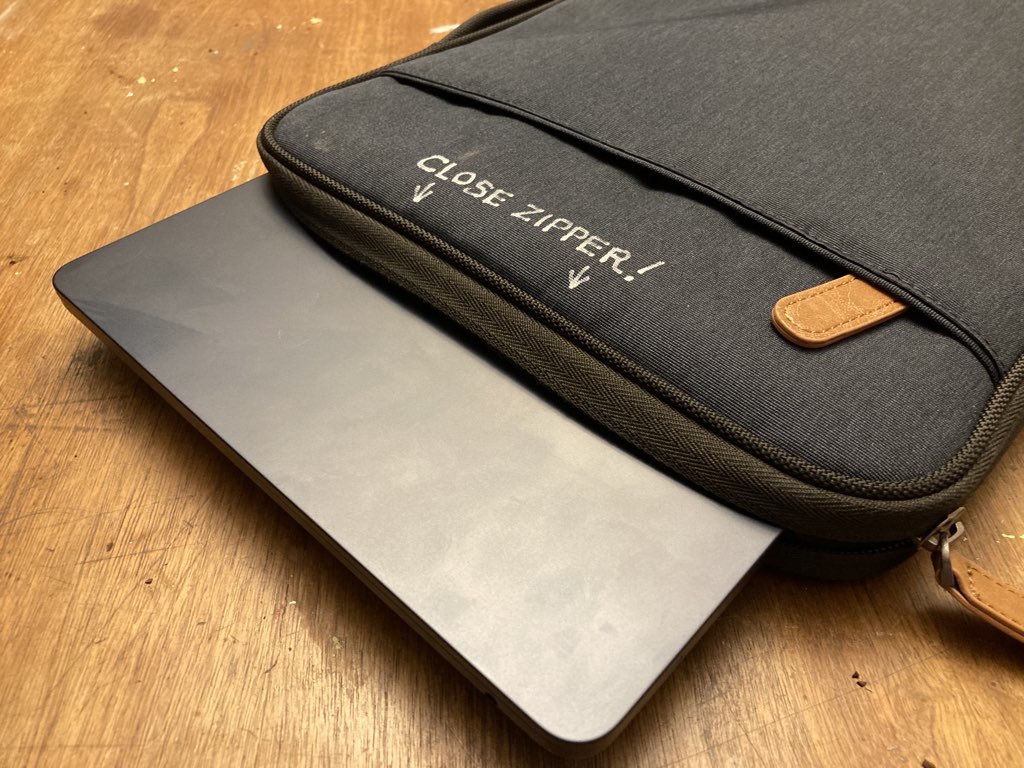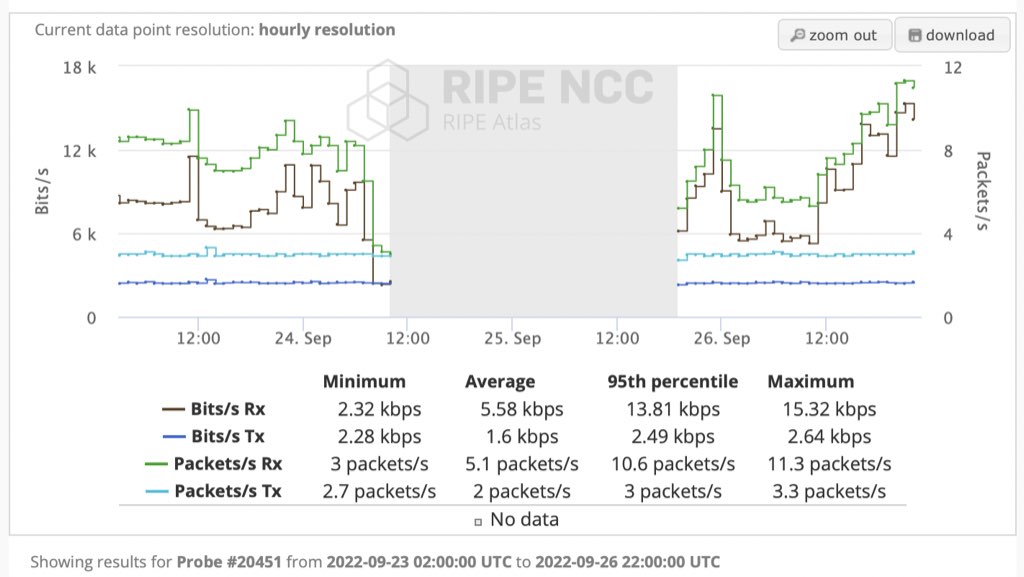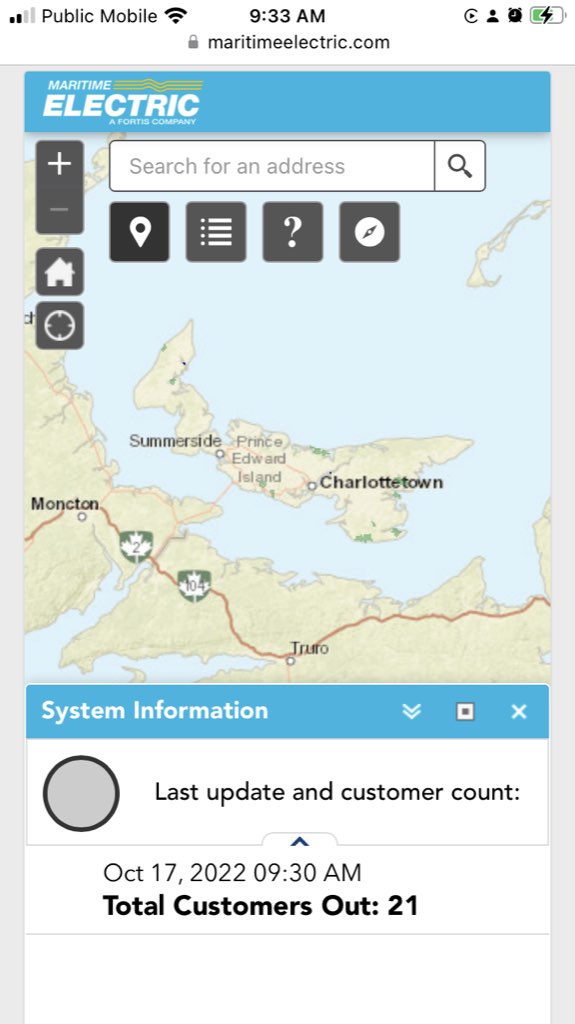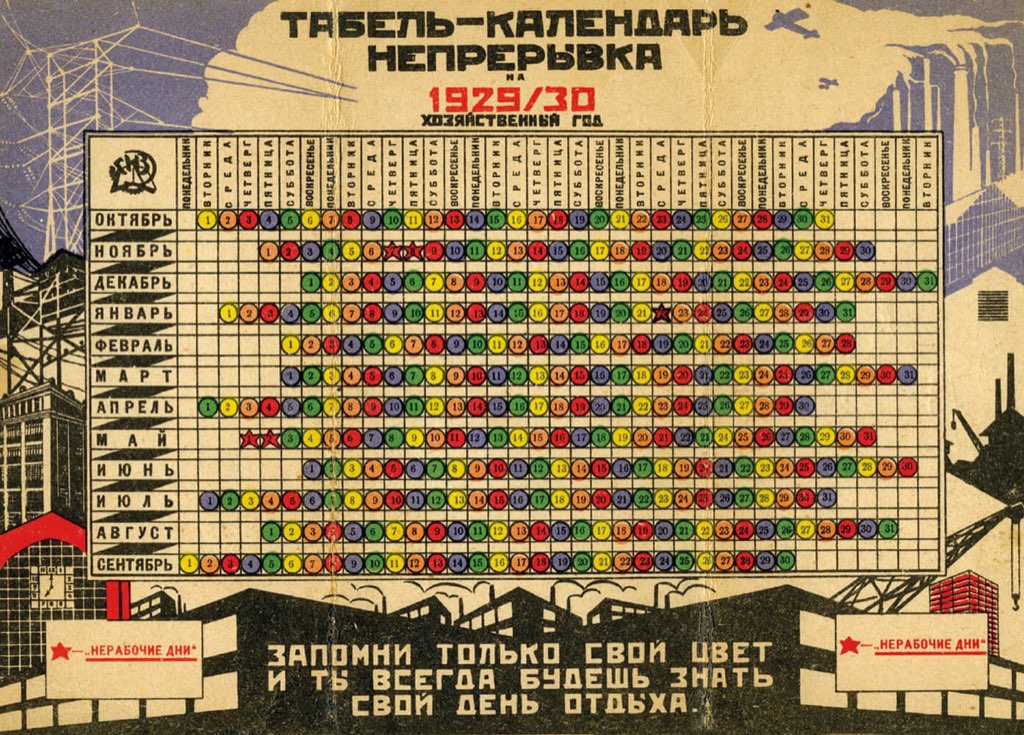When the built-in translation features for iOS were first launched the list of language pairs was limited, to the point where I stopped even trying to use the feature, as Dutch, Swedish, Danish, German weren’t on the list.
I discovered this morning that, although Swedish and Danish are still absent, Dutch and German have showed up. Which makes it a little bit easier to read the blogs of friends like Frank.
With the dining room table taken up with Hallowe’en-related activities, we needed an alternate place to eat supper.
In Travel, the autism spectrum, and the pandemic, Edward Hasbrouck writes, in part:
Re-emerging from our COVID-19 cocoons is disorienting and stressful. This psychological phenomenon was anticipated almost 50 years ago by Isaac Asimov (often assessed, in retrospect, as having been on the autism spectrum) in his prescient pandemic must-read novels of physical distancing and virtual meetings, “The Naked Sun” and “The Robots of Dawn”.
This aspect of the return to a post-pandemic “new normal” is true for everyone, but perhaps especially true for people on the autism spectrum.
For more than a year after the outbreak of COVID-19, I was never further from my home in San Francisco than I could get, and return, in a day, by bicycle. I resumed travelling only after I was vaccinated, at first only to see elderly and ailing relatives.
The first time I travelled to a gathering of strangers in a distant city was for the annual meeting of the Peace and Justice Studies Association in October 2021. After a year and a half in the familiar environs of my home, previously routine travel experiences such as walking down a street in Milwaukee and eating with a group of strangers at a campus conference-center buffet seemed exotically unfamiliar and induced an almost overwhelming sensory overload, as though I were on some psychedelic drug.
My last trips outside Atlantic Canada were three years ago: a work trip to New Hampshire by air and EV in September 2019, followed, two months later, by a trip to Ontario when my father died. I haven’t been outside of North America since the fall of 2018, when Olivia and I travelled to Europe.
Previous to that I enjoyed a privileged life of regular travel to the US, Asia, and Europe; indeed my emotional resilience as a individual, father and partner on this small island was, to a great extent, predicated on being able to regularly leave this small island. Robbed of that opportunity by circumstance (illness, death, grief, caregiving, and the stretch goal of COVID) has changed the foundations of my life in ways that I’m just now beginning to realize.
There is a strong undercurrent of wanting to get out on the open road running through me; it’s a mix of wanting to throw off the shackles of confinement and a need to feed my hungry mind. And yet the complexity of my current situation — partner, kids, school, work, in their various permutations and combinations — makes getting out on that road, especially in a way that affords some spacious clarity, an often-insurmountable-seeming task. To say nothing of the emerging-from-fallout-shelter fears of what the world out there might look and feel like when I’m able to get there.
Edward finishes his post with a question:
As you begin travelling again, or begin travelling further afield, plan to travel more slowly, with rest days and breaks. Leave your plans more flexible. Avoid package tours or cruises that lock in your pace and itinerary. Give your brain a chance to gradually get back into its travel groove. Celebrate the chance to experience the world anew and to see the world with a fresh eye!
Are you travelling again? What seems different than before? Is that because the world has changed, or because your perspective has?
There is no question that my circumstances have changed, fundamentally; at the same time, vestigial perspectives—loneliness, fear, isolation, resignation—remain baked inside me.
I want to emerge into the world, as Edward suggests, and seize a ”chance to experience the world anew and to see the world with a fresh eye.” I want to take this new edition of me on tour, and the prospect of that is exciting, thrilling, hopeful.
And yet I’m afraid that those baked-in perspectives are baked in to an extent that a simple change of scenery isn’t enough to affect.
The only way to find out is to get outta town. I hope to do that. Soon.
A copy of the Journal-Pioneer for October 22, 1965 appeared in my vestibule this afternoon.
“Most Difficult Space Attempt 3 Days Away.”
You read it here first.
I bought a smart new MacBook Air M2 earlier this year: it’s a lovely machine, fast and sleek and better in almost all ways than the 11 year old MacBook Air it replaced (I get good mileage out of big expensive things).
One of the things the sexy new machine has prompted me to do is to work in places other than my church basement office: I’ve spent more time working from my dining room table, from the camper, from the library, from the coffee shop, in the last two months than ever before.
To enable this new work mobility, I bought a PKG laptop case from Staples last month. It’s a great case: just the right size for the MacBook and it’s power brick and cable, with a comfortable carrying handle on the top.
The one downside is that the laptop enters the case through a zipper on the short edge.
This downside isn’t entirely a downside: keeping the insertion point away from the top handle area makes things much cleaner and less complicated.
But it’s a downside inasmuch as when I forget to zip the zipper closed, when I place the MacBook inside the case, there’s a 50% chance that sometime shortly thereafter, as I walk about town, the computer is going to come shooting out the end and land on the sidewalk.
It’s happened twice.
Fortunately the computer hasn’t been damaged, other than mild scratching, when this has happened.
But evasive action was needed.
For reasons I don’t completely understand, I have a difficult time “defacing” things I own: I never put stickers on laptops, bumper stickers on cars, etc. I want to change this, to become less precious in my relationship with stuff, and to unleash my inner customizer, but it’s a struggle.
In this case, though, I struggled and I won.
In the model of the Neistat brothers, who label and customize everything, I took a “whiteout pen” and wrote CLOSE ZIPPER! on both sides of the case, near the zipper:

Doing this goes against all my anti-defacement tendencies. But I also love it a lot. And I’m hopeful that it will help keep my MacBook Air from an early death.
Two of the declared candidates for Mayor in Charlottetown have located their offices directly beside each other.
Incumbent Philip Brown’s campaign is in the former My Plum, My Duck; next door, Cecil Villard is in the former Seatreat.
Let the entertaining parking lot rumbles ensue!
In the pantheon of Hurricane Fiona stories, I got nothing, relatively speaking, on the hardship file. Yes, my back yard lost a lot of trees, but with the help of neighbours, friends, and family, they were quickly despatched.
Being on the same circuit as the Queen Elizabeth Hospital and the Irving oil tank farm meant that restoring our power was, indirectly, a priority. As this chart from the RIPE Atlas probe in my office across the street—on the same electrical circuit—shows, we lost power at 7:00 a.m. on the September 24, 2022—the morning the hurricane was at its most intense—and it was restored at 4:00 p.m. on September 25, the next day:

We were without power for 33 hours, a duration that, compared to what others endured, was akin to not having lost power at all.
Twenty-three days later, the Maritime Electric outage map shows 21 customers remain without electricity (I suspect that, in the annals of GIS web apps, the outage map will, for a long time, be the one that recorded the most traffic and bore the most scrutiny):

This means that, sometime soon—today? this week?—some household will be the final one to have power restored. If Premier King isn’t at their doorstep with valuable cash prizes, an Order of PEI, and the enduring thanks of a grateful province for withstanding powerlessness until the very very very end, there’s something wrong with the world.
In a story in today’s Guardian about the slow progress the Red Cross has made in distributing Hurricane Fiona support payments to Islanders is a rather creepy revelation that the organization is using surveillance capitalism to verify citizen’s identities:
Lawlor said the Red Cross relies on open source data services to confirm the identity of applicants.
These services include what is known as a ‘soft credit check’ – a service used often by financial institutions to match against existing consumer data.
Lawlor said these checks have no impact on credit scores of individuals.
“For example, people who do a lot of online shopping, they have a footprint, right? Your data — whether it be in your mobile device or your computer at home — that does inevitably leave a footprint,” Lawlor said.
But Lawlor said there was an unusually high number of Island residents whose data profile simply required additional verification.
Some elderly residents, whose homes or cars are paid off, do not regularly use credit, he said. Other residents simply may not frequently shop online, or may simply not use internet tools frequently.
“Their data might be a little bit more stale, for lack of a better word, than someone who is more of a frequent user of credit,” Lawlor said.
First, this seems a misuse of the term “open source data services” — there’s no such thing (I hope!) as open data that establishes personal identity like this: the data that’s described sounds like proprietary commercial data scraped surreptitiously and aggregated by creepy warehousers.
Second, it is not okay for government to distribute public money to citizens via a third-party non-profit organization that uses surveillance data to verify identity, a system that inequitably disadvantages many people who need the funds most — people without a digital footprint or a credit score.
I have more than a passing interesting in calendars, and especially in calendars that break outside the norm, so Calendar Collective is a fragrant flower to my calendar-loving honeybee brain:
Calendar Collective is a living archive of alternate calendars. It is an ongoing investigation for collecting, cataloguing and publishing calendars that are little-known to our world. We use openly contributed voicemails as are our unique research material. The archive offers an uncommon collection of calendars traced through these unwritten and slightly incongruous fragments.
My favourite in the archive is an artifact of the late 1920s Soviet experiments with a ”continuous production” — непрерывка — work calendar:
A decree of 24 September modified the proposal by replacing the sevenday cycle with a five day one. The workers were issued with coloured slips of paper to tell them which day to take off: yellow, orange, red, purple, and green. They were to observe a day off on the day that fell on their colour.
This calendar, reproduced from a 2016 post from Tony Wood, shows this colour-coding system: the months are along the left side, starting with October (октябрь), and the days of the week are along the top, starting with Monday (Понедельник). So if you were I the purple worker squad, you got Friday, October 4 as your day off, and then Wednesday, October 8, and so on, working 4-days-on, 1-day-off (distracting tangent):

The problem with the system, according to a letter published in Pravda in 1929 and reprinted by Wood:
What is there for us to do at home if our wives are in the factory, our children at school, and nobody can visit us, so that there is nothing left but to go to a State tearoom? What sort of a life is it if we are to rest in shifts and not together as a whole proletariat? It is no holiday if you have to have it alone.
In other words: there’s benefit to everyone having the same day off because it means we can hang out. What sort of life is it, indeed, if we are to rest in shifts.
Regardless, the calendar itself is a thing of beauty.
(This was a rabbit hole I fell into by following a link in the SPACE10 newsletter, which is excellent).
Our first post-Fiona emergency preparedness purchases arrived today: two Midland ER210 emergency crank weather radios, the Wirecutter runner-up pick. They were $67 each, ordered online, on sale, from Cabela’s.
AM, FM, and weather radio, powered by crank, solar, or USB charging.
In the late just-pre-Fiona hours, Lisa and I rambled around town looking for D-cell batteries to power her boombox, finding the shelves empty (a resourceful neighbour came through for her in the end); across town I had no radio at all but the one in my car. Next time, we’ll be better prepared.
 I am
I am